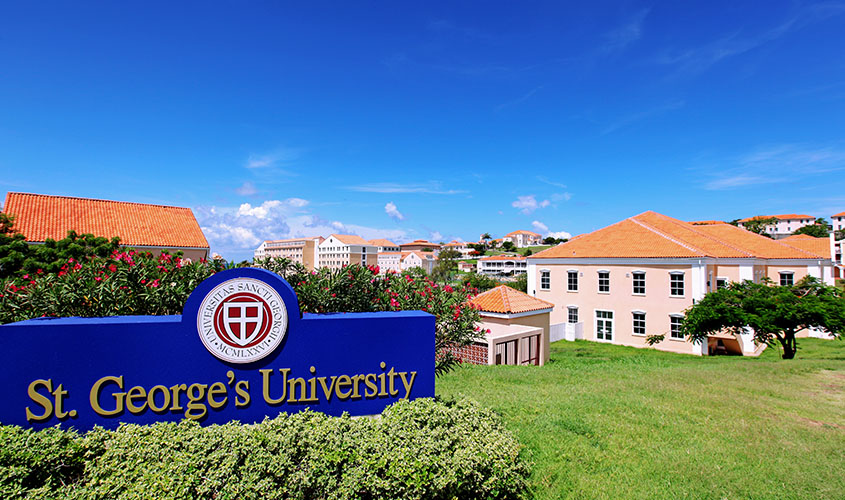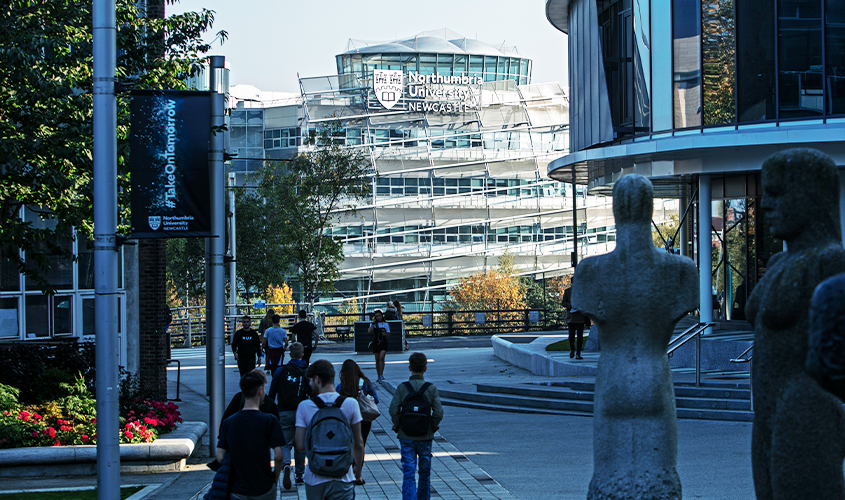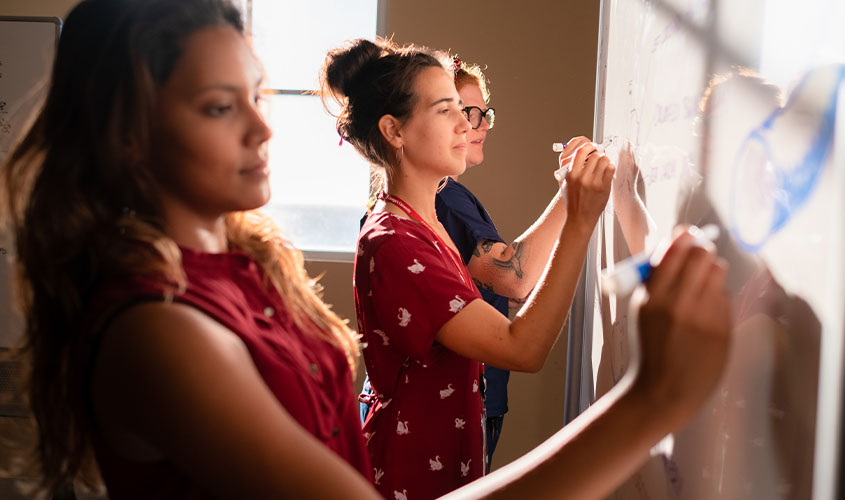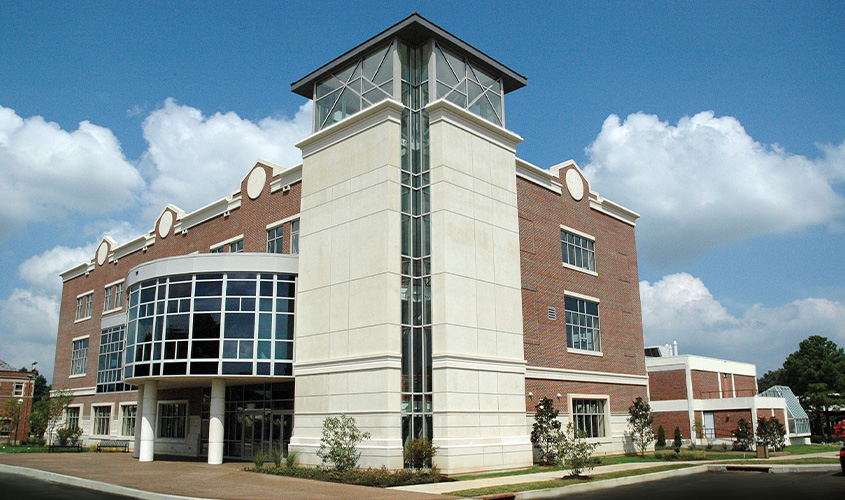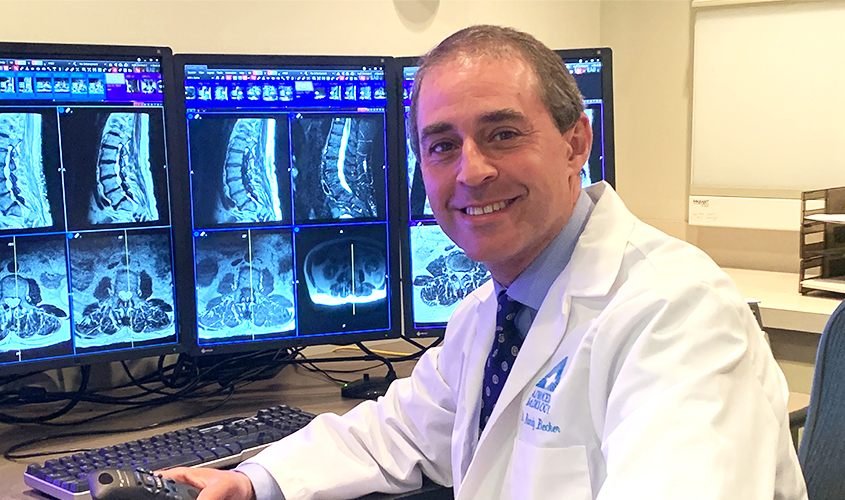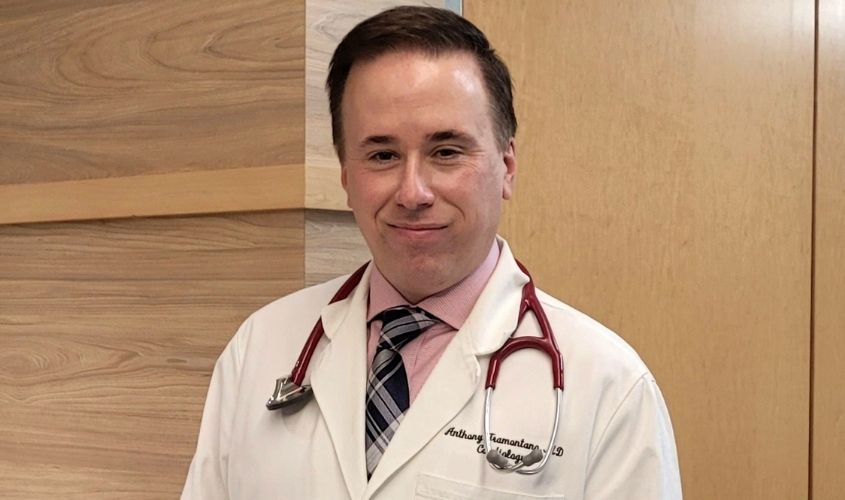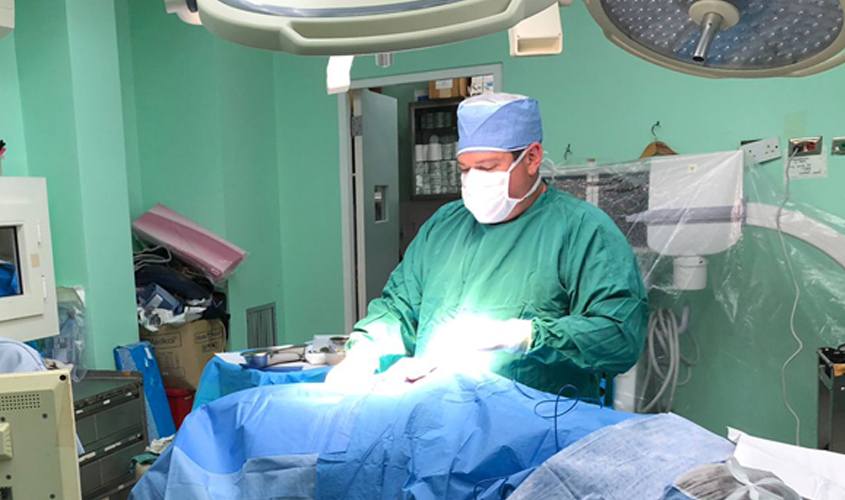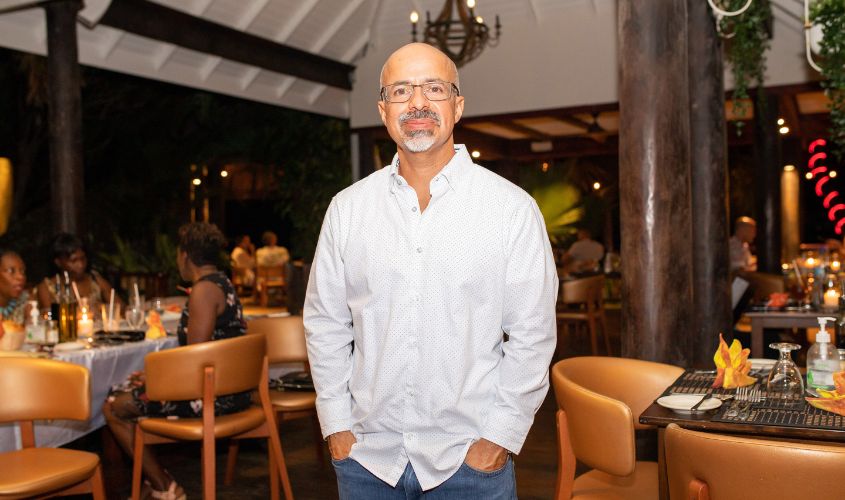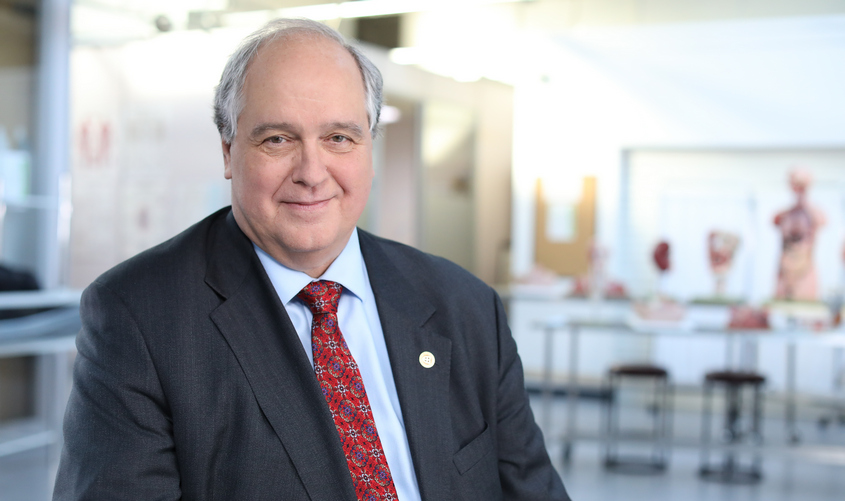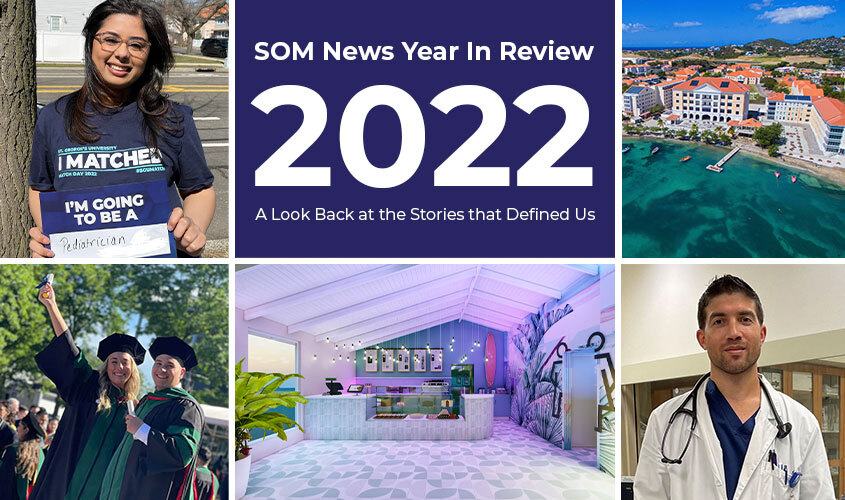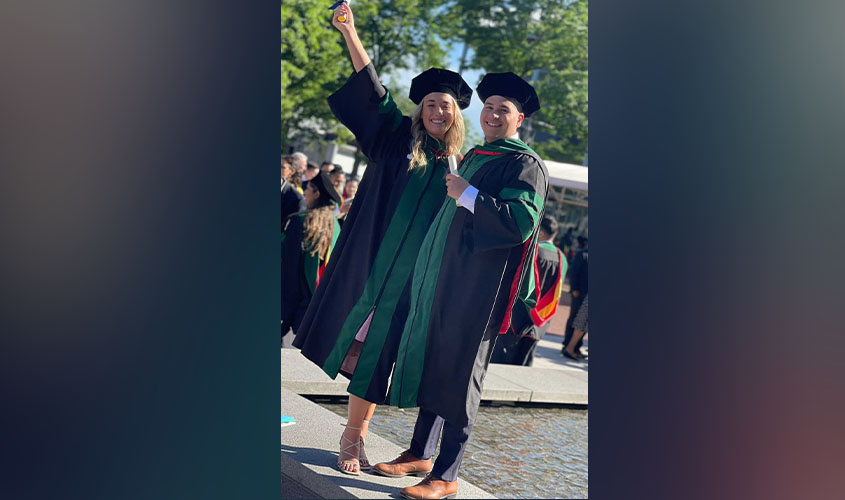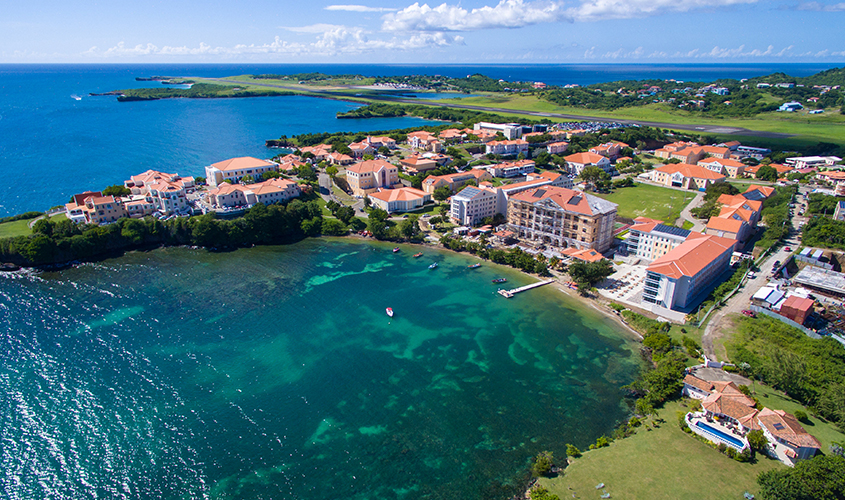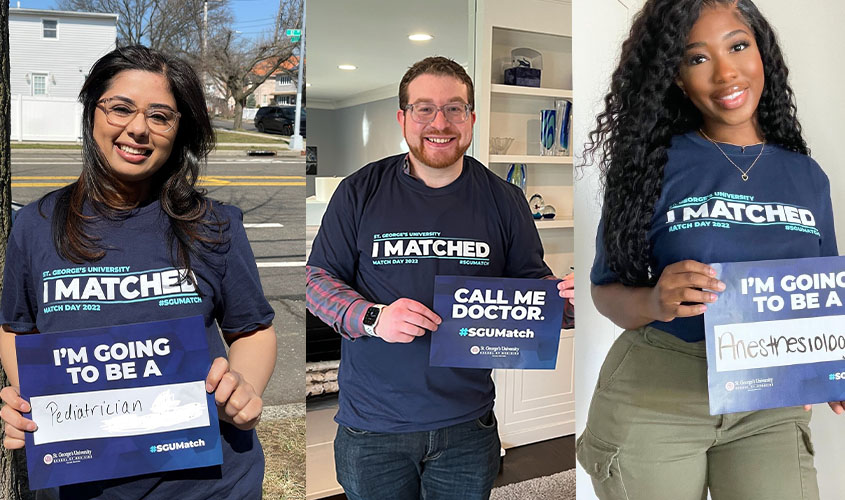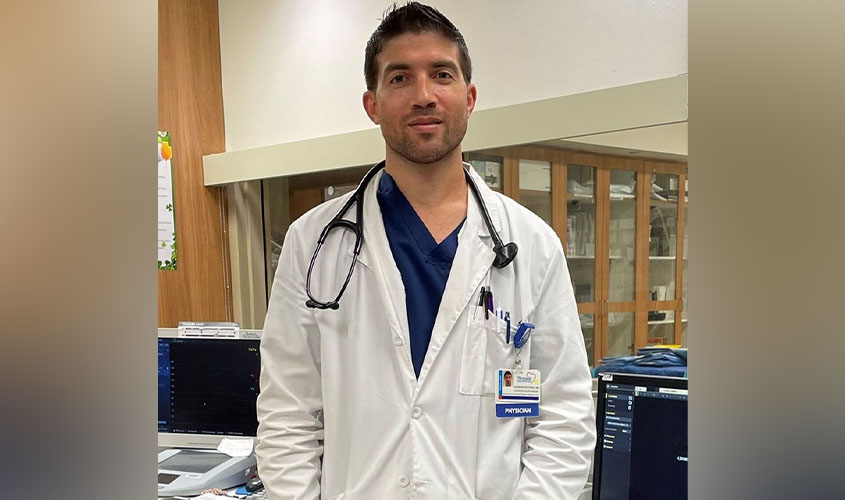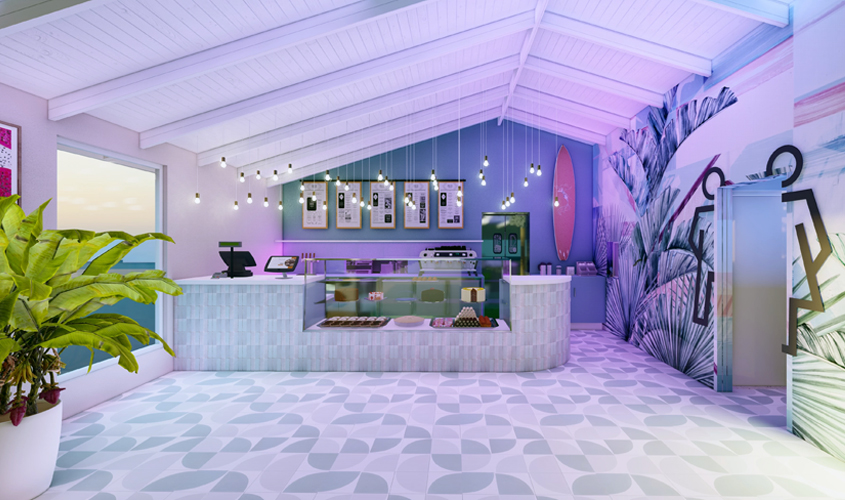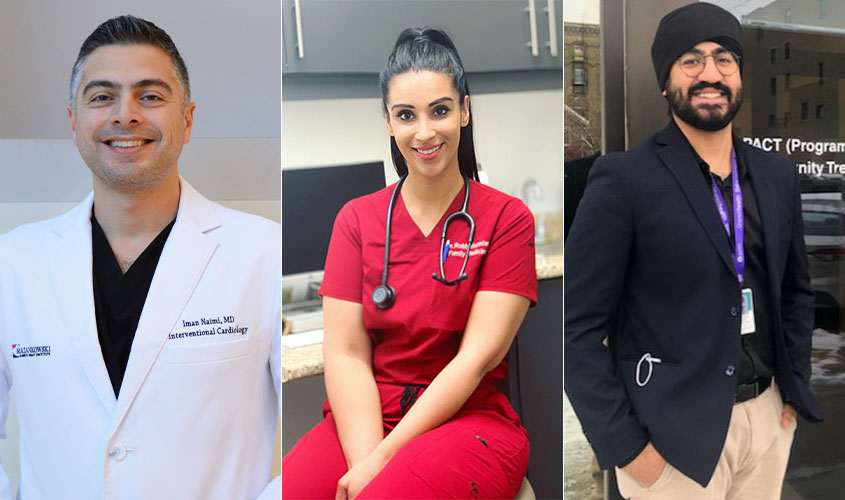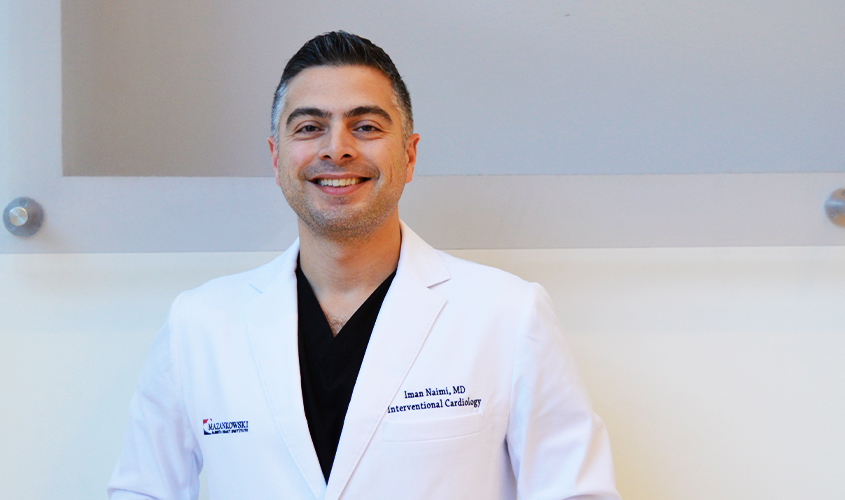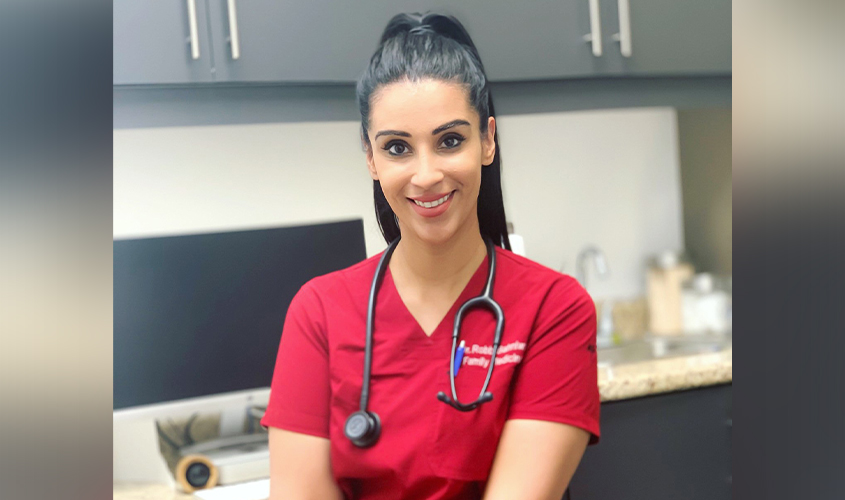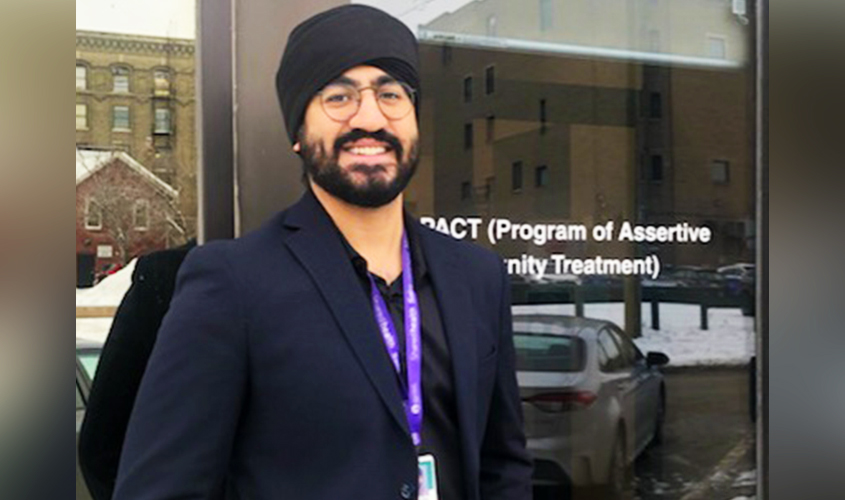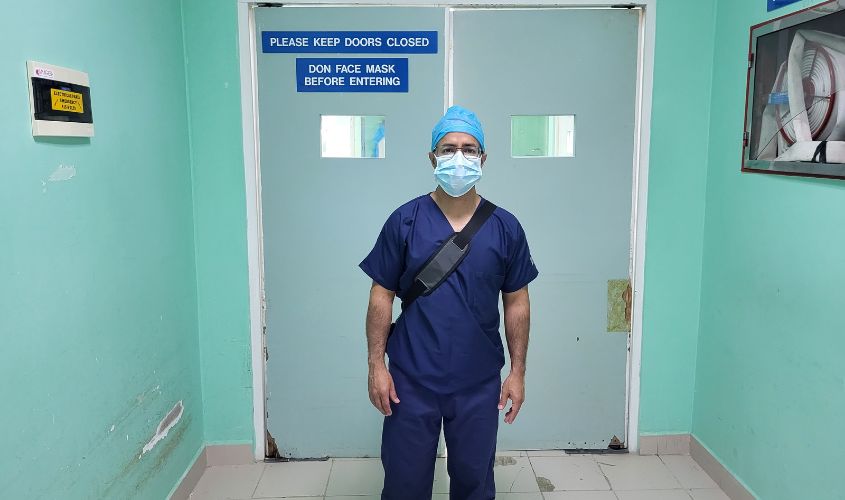SGU Students to Use Prestigious APA “Helping Hands Grant” to Benefit Underserved Populations
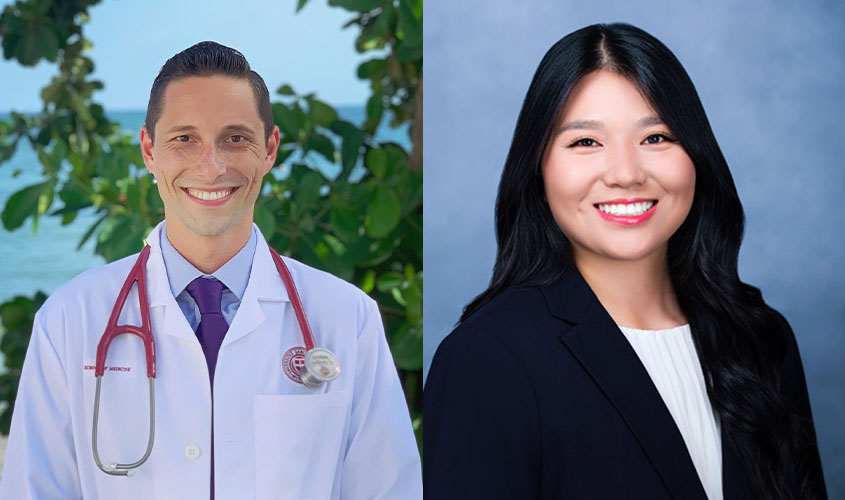
Two School of Medicine students will use a prestigious grant awarded to St. George’s University to further their research in mental health initiatives for underserved communities.
SGU and fourth-year students John Crane and Janice Lee are among the 2022-2023 recipients of The American Psychiatric Association Foundation’s (APAF) Helping Hands Grant Program. SGU is one of the few international medical schools to receive the award since the program’s inception in 2005.
“This grant is a great honor for both our students and SGU. I look forward to hearing about the students’ findings,” said Dr. Laurence Dopkin, assistant dean of students for the School of Medicine’s US Clinical Program and a Distinguished Fellow within the APA. He served as the supervising faculty for Mr. Crane and Ms. Lee’s application, created in collaboration with the Manhattan Psychiatric Center, a fellow student from another medical school, and the team at WINDREF Research Institute.
The Helping Hands Grants Program provides grants of up to $5,000 to medical schools for “mental health and substance use disorder projects, particularly in underserved minority communities. The funded projects are created and managed by medical students and can be conducted in partnership with community agencies, or in conjunction with ongoing medical school outreach activities,” according to the Foundation’s website.
“The APA Foundation is pleased to award a Helping Hands grant to St. George’s University,” said Rawle Andrews, Jr., Esq., executive director of the APA Foundation. “Through the efforts of St. George’s dedicated medical students and all the other grantees’ schools, these grants will help improve the quality and accessibility of mental health services in underserved communities.”
“Working on this project has fortified my love of psychiatry and provided me the opportunity to interact with a variety of mental health professionals that I probably would not have had the chance to otherwise.”
The two aspiring psychiatrists applied for the grant to further their research measuring the success of patients transitioning from inpatient psychiatric units back to community living. A unique challenge that many psychiatric patients face is integration within their community, which is amplified when following inpatient psychiatric hospitalization, they said.
“There are a lot of obstacles that prevent effective reintegration, and our grant is attempting to better understand this process,” Ms. Lee said. “We will follow patients that have been discharged from Manhattan Psychiatric Center and evaluate how successful they are in assimilating back into their community based on identifiable data outcomes, such as inpatient readmission, outpatient follow up, and housing.”
Mr. Crane, who completed his psychiatry rotation at Manhattan Psychiatric Center, said he is passionate about improving patients’ access to high-quality healthcare and reducing the stigma of mental health treatment. He shared that he went into medicine to serve underserved populations and improve their well-being.
“I realized there were opportunities to help patients through research, which made me want to apply for the grant and conduct research during my fourth year of medical school,” said Mr. Crane, who previously worked as a research assistant on several projects ranging from cognitive psychology to HIV prevention. “It is an honor to be a medical student working in a lead role on a grant from the APAF. Receiving this grant provides validation and reassurance that I am on the right track to do great things for my future psychiatry patients.”
Mr. Crane credited Dr. Dopkin and other SGU educators for the recent achievement, as well as SGU alum, Dr. Valentino Vasy, a PGY-4 psychiatry resident at Metropolitan Hospital for his guidance through the application process. He hopes the research will make him a competitive applicant for psychiatry residency programs.
“I could not have received this grant without the help of SGU and its alumni network,” said Mr. Crane.
Ms. Lee echoed his sentiments.
“Research is becoming increasingly necessary to evaluate different aspects of psychiatric care, whether it be in clinical care, pharmacological, or different social determinants of health,” she said. “Working on this project has fortified my love of psychiatry and provided me the opportunity to interact with a variety of mental health professionals that I probably would not have had the chance to otherwise.”
Like other grant recipients, the students will be invited to present a poster about their project at one of the American Psychiatric Association’s conferences in 2024. The 2022 award was also given to medical students from: Howard University College of Medicine, Rutgers New Jersey Medical School, University of Chicago, University of Tennessee, and University of Washington.
—Ronke Idowu Reeves and Laurie Chartorynsky
